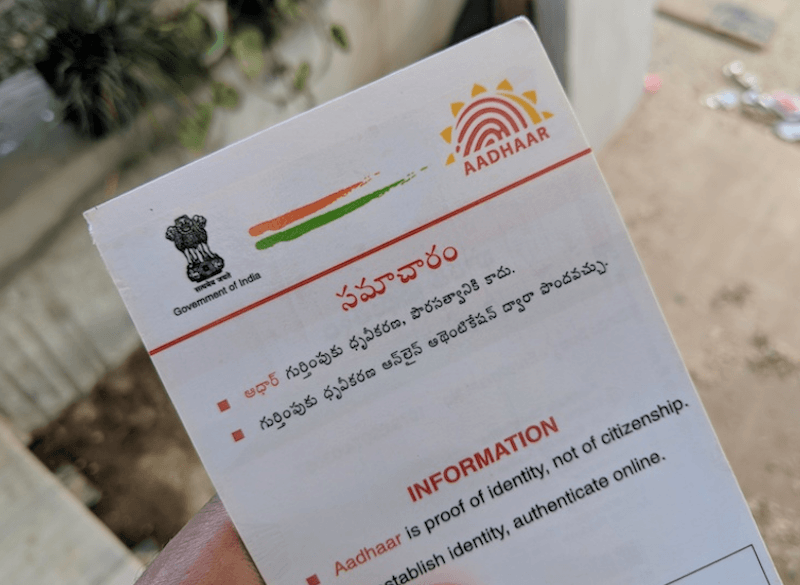The Unique Identification Authority of India (UIDAI) has already put a deadline for telcos to submit an alternate plan to the eKYC verification method. A new report from PTI now reveals that a large operator has sought more time to share its action plan to migrate to an alternate system of authenticating mobile users. The operator cited that reverting back to paper verification was not just costly, but it might even lead to delays and has security-related issues. Just a few weeks back, we reported that telcos had approached DoT with an alternate method for eKYC, but it seems like the new method is not yet ready for public availability. Also, telcos have spent a lot of money on developing the eKYC verification method and everything goes in vain with the latest directive from the Supreme Court.

UIDAI Asked Telcos to Submit a Plan by October 15
The UIDAI had asked telecom companies to submit, by October 15, a plan to stop using Aadhaar for customer authentication after the Supreme Court imposed curbs on the use of the 12-digit unique ID number. When contacted, a Bharti Airtel spokesperson said the company had submitted its response to the UIDAI but did not divulge any details. E-mails sent to Reliance Jio and Vodafone Idea Ltd remained unanswered.
Industry body COAI, meanwhile, said the telecom department must give clear directions to telcos on KYC norms to be adopted by telcos. "COAI has not written to UIDAI. We have left it to individual operators to respond as they see fit. Our position is that Department of Telecom (DoT) must provide clarity on the issues raised by the UIDAI," COAI Director General Rajan Mathews said.
Large Telecom Operator Approached UIDAI For the Delay
While all the operators remained tight-lipped on the issue, a source said that one of the large operators has written to the UIDAI saying it needs more time for sharing an exit plan for migration to an alternate process which should be done in consultation with the DoT.
The operator has said that massive investments were made in setting up the infrastructure for digital KYC, as also for biometric devices and workforce training. An on-ground challenge would also be to re-train manpower for the new digital subscriber on-boarding process, which would be time-consuming, expensive and challenging in the current environment of intense competition and severe financial stress.
The source said the operator had informed the UIDAI that it is working with the DoT on an alternate digital process for issuing mobile connections to new customers, which will require huge amounts of investment, training and customer education by the telecom service providers (TSPs).
The operator is also learnt to have said that fall back to the paper verification process would be retrograde and could lead to delays in service activation, besides having security-related issues.
It said that an Aadhaar-based activation took "less than 5 minutes" irrespective of the customer's location while paper activation takes 2-3 days for rural markets, and one day in the urban market.
What's the Original Issue?
On October 1, the UIDAI had also asked all telecom operators to "take immediate cognisance" of the request for delinking Aadhaar with a mobile number as and when such requests are received from subscribers.
"...all TSPs are called upon to immediately take actions in order to comply with the judgement dated 26.09.2018. In this regard, TSPs are at this moment directed to submit by October 15, 2018, an action plan/exit plan to the authority for closure of use of Aadhaar based authentication systems..." the UIDAI circular had said.
The authority noted that TSPs might take appropriate action to perform fresh KYC as per the DoT approved a list of proof of identity and proof of address within six months from the date of such request to avoid de-activation of the mobile number.
The Supreme Court, last month, struck down Section 57 of the Aadhaar Act, which allowed private companies to use the 12-digit biometric ID-based eKYC. Following this, private companies like telecom operators will not be able to use this instantaneous and inexpensive Aadhaar eKYC authentication route.















